 Whiteman and his University of California, Berkeley, colleagues have turned perfectly palatable fruit flies -- palatable, at least, to frogs and birds -- into potentially poisonous prey that may cause anything that eats them to puke. In large enough quantities, the flies likely would make a human puke, too, much like the emetic effect of ipecac syrup.
Whiteman and his University of California, Berkeley, colleagues have turned perfectly palatable fruit flies -- palatable, at least, to frogs and birds -- into potentially poisonous prey that may cause anything that eats them to puke. In large enough quantities, the flies likely would make a human puke, too, much like the emetic effect of ipecac syrup.Happy New Year

Foodfarmnewstv
SPONSORED

Nigerian Institute of Soil Science- NISS
Translate Food Farm News to Hausa, Igbo, Yoruba and over 100 Languages
Total Pageviews
Search This Blog
Labels
- News (591)
- Images speak (44)
- Press Release (40)
- FACAN (31)
- livestock (31)
- Editorial (30)
- GM (24)
- Seed (21)
- Biotechnology (19)
- wheat (18)
- Research (17)
- AFAN (16)
- Cassava (16)
- Special Report (14)
- Global news (12)
- Rice (11)
- Cashew (10)
- Image Speaks (10)
- Maize (10)
- Soil (9)
- Cocoa (8)
- Disease (8)
- Fertilizer (8)
- Yam (8)
- Bt cowpea (7)
- Coconut (7)
- Ginger (7)
- NCARD (7)
- Potato (6)
- World Soil Day (6)
- new (6)
- Animals (5)
- Apple (5)
- Climate change (5)
- Oil Palm (5)
- Organic agric (5)
- Tomatoe (5)
- Fish (4)
- National Council meeting on Agriculture. (4)
- Shea butter (4)
- Tomato (4)
- World Food Day (4)
- bt cotton (4)
- HAPPY NEW YEAR (3)
- Interview (3)
- Plant & genes (3)
- Plant genes (3)
- Project (3)
- Sesame (3)
- AI Research on Agriculture (2)
- Achia (2)
- African Cherry (2)
- Communique (2)
- Cotton (2)
- Extension services (2)
- Gene editing (2)
- Horticulture (2)
- Insurance (2)
- Kenaf (2)
- Opinion (2)
- Sorghum (2)
- Soybean (2)
- Sunflower (2)
- Turmeric (2)
- seasons greetings (2)
- water (2)
- Artemesia (1)
- Biodiversity (1)
- Birds (1)
- Carrot (1)
- Discovery (1)
- Donkey (1)
- Facts sheets (1)
- Flash Flood (1)
- GES (1)
- GMO Rice (1)
- Garlic (1)
- Genetic (1)
- Groundnut (1)
- Jute bag (1)
- Locust bean (1)
- MERRY XMAS (1)
- Machinery (1)
- Mango (1)
- Milk (1)
- Okra (1)
- Post-harvest losses/ Food Waste (1)
- Presentation (1)
- Seaweed (1)
- Senate (1)
- Tumeria (1)
- Walnut (1)
- flood (1)
- fruits (1)
- millet (1)
Federation of Agricultural Commodity Associations of Nigeria

FACAN
newYearCountdown
Thursday, 31 October 2019
CRISPRed fruit flies mimic monarch butterfly, and could make you vomit
 Whiteman and his University of California, Berkeley, colleagues have turned perfectly palatable fruit flies -- palatable, at least, to frogs and birds -- into potentially poisonous prey that may cause anything that eats them to puke. In large enough quantities, the flies likely would make a human puke, too, much like the emetic effect of ipecac syrup.
Whiteman and his University of California, Berkeley, colleagues have turned perfectly palatable fruit flies -- palatable, at least, to frogs and birds -- into potentially poisonous prey that may cause anything that eats them to puke. In large enough quantities, the flies likely would make a human puke, too, much like the emetic effect of ipecac syrup.Organic farming: Nigeria sets up task force for certification
Towards ensuring conformity to standard and certification of
local produce, the national organic farming practitioners of Nigeria has
inaugurated a task force that will constantly monitor that registered members
do conform to best agronomics practice of agricultural produce.
Wednesday, 30 October 2019
No need to cut down red and processed meat for health reasons, controversial findings suggest
 Most people can continue to eat red and processed meat as they do now. A major study led by researchers at McMaster and Dalhousie universities has found cutting back has little impact on health.
Most people can continue to eat red and processed meat as they do now. A major study led by researchers at McMaster and Dalhousie universities has found cutting back has little impact on health.FG to sustain interventions in the agricultural sector, says PMB

President Muhammadu Buhari has
reiterated his administration’s commitment to sustain interventions in the
Agricultural Sector to boost economic growth and create jobs for Nigerians. He
stated this at the National Agricultural Show to mark this year’s World
Food Day Celebration held in Abuja.
NAERLS REPORT: Agric minister emphasis data for performance measurement

The
Minister of Agriculture and Rural Development, Sabo Nanono has disclosed that
Nigeria has achieved 80 percent performance in the agric sector, but can still
do much better if she introduced the use of data as a way to reposition the
industry.
Govt., experts ask farmers to adopt new yam technology

As
part of efforts to help Nigeria produce quality yam that will meet up with the
standard required by the European market, the Federal Government along sides
experts have called on farmers in Nassarawa to adopt the new yam technology as
a means to increase quality yam production in the state.
Tuesday, 29 October 2019
Plants alert neighbors to threats using common 'language'
 New research from Cornell University shows that plants can communicate with each other when they come under attack from pests.
New research from Cornell University shows that plants can communicate with each other when they come under attack from pests.Monday, 28 October 2019
Aspirin may halve air pollution harms

A new study is the first to report evidence that nonsteroidal anti-inflammatory drugs (NSAIDs) like aspirin may lessen the adverse effects of air pollution exposure on lung function. The team of researchers from the Columbia Mailman School of Public Health, Harvard Chan School of Public Health, Boston University School of Medicine published their findings in the American Journal of Respiratory and Critical Care Medicine.
Sunday, 27 October 2019
Brave new world: Simple changes in intensity of weather events 'could be lethal'
 Hurricane Dorian is the latest example of a frightening trend. Extreme weather events are becoming more frequent, more severe and more widespread as a consequence of climate change. New research from Washington University in St. Louis provides important new insights into how different species may fare under this new normal.
Hurricane Dorian is the latest example of a frightening trend. Extreme weather events are becoming more frequent, more severe and more widespread as a consequence of climate change. New research from Washington University in St. Louis provides important new insights into how different species may fare under this new normal.Saturday, 26 October 2019
A new concept could make more environmentally friendly batteries possible

A new concept for an aluminium battery has twice the energy density as previous versions, is made of abundant materials, and could lead to reduced production costs and environmental impact. The idea has potential for large scale applications, including storage of solar and wind energy. Researchers from Chalmers University of Technology, Sweden, and the National Institute of Chemistry, Slovenia, are behind the idea.
Friday, 25 October 2019
Sweet corn growers, processors could dramatically increase yield, profit
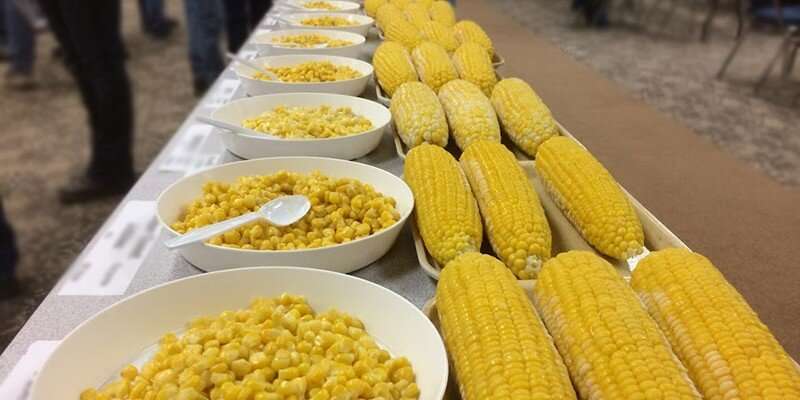 In an industry struggling to maintain profitability, it's curious that U.S. processing sweet corn -- the corn that ends up in cans and freezer bags -- is falling so far below its potential. Yet, that's what a new study in PLOS ONE clearly demonstrates.
In an industry struggling to maintain profitability, it's curious that U.S. processing sweet corn -- the corn that ends up in cans and freezer bags -- is falling so far below its potential. Yet, that's what a new study in PLOS ONE clearly demonstrates.Thursday, 24 October 2019
Genomes of parasitic mites harming the world's bees sequenced
 Honey bee colony collapse has devastating consequences for the environment, the global economy, and food security worldwide.
Honey bee colony collapse has devastating consequences for the environment, the global economy, and food security worldwide. Wednesday, 23 October 2019
Toxin promotes cattle-to-cattle transmission of deadly Escherichia coli strains
 Shiga toxin subtype 2a (Stx2a) may play a key role in promoting the colonization and transmission of life-threatening Escherichia coli strains in cattle, according to a study published October 3 in the open-access journal PLOS Pathogens by Tom McNeilly of the Moredun Research Institute, David Gally of the University of Edinburgh, and colleagues. As these bacteria evolve ways to increase the activity of Shiga toxins, they may become more of a threat to human health.
Shiga toxin subtype 2a (Stx2a) may play a key role in promoting the colonization and transmission of life-threatening Escherichia coli strains in cattle, according to a study published October 3 in the open-access journal PLOS Pathogens by Tom McNeilly of the Moredun Research Institute, David Gally of the University of Edinburgh, and colleagues. As these bacteria evolve ways to increase the activity of Shiga toxins, they may become more of a threat to human health.Tuesday, 22 October 2019
The last mammoths died on a remote island
 The last woolly mammoths lived on Wrangel Island in the Arctic Ocean; they died out 4,000 years ago within a very short time.
The last woolly mammoths lived on Wrangel Island in the Arctic Ocean; they died out 4,000 years ago within a very short time. Monday, 21 October 2019
You don't have to go cold turkey on red meat to see health benefits
 A new study has found that halving the amount red and processed (RPM) meat in the diet can have a significant impact on health, reducing the amount of LDL 'bad' cholesterol in the blood which cuts the risk of developing heart disease.
A new study has found that halving the amount red and processed (RPM) meat in the diet can have a significant impact on health, reducing the amount of LDL 'bad' cholesterol in the blood which cuts the risk of developing heart disease.Sunday, 20 October 2019
Machu Picchu: Ancient Incan sanctuary intentionally built on faults
 The ancient Incan sanctuary of Machu Picchu is considered one of humanity's greatest architectural achievements. Built in a remote Andean setting atop a narrow ridge high above a precipitous river canyon, the site is renowned for its perfect integration with the spectacular landscape.
The ancient Incan sanctuary of Machu Picchu is considered one of humanity's greatest architectural achievements. Built in a remote Andean setting atop a narrow ridge high above a precipitous river canyon, the site is renowned for its perfect integration with the spectacular landscape. Saturday, 19 October 2019
Antimicrobial resistance is drastically rising
 The world is experiencing unprecedented economic growth in low- and middle-income countries. An increasing number of people in India, China, Latin America and Africa have become wealthier, and this is reflected in their consumption of meat and dairy products. In Africa, meat consumption has risen by more than half; in Asia and Latin America it is up by two-thirds.
The world is experiencing unprecedented economic growth in low- and middle-income countries. An increasing number of people in India, China, Latin America and Africa have become wealthier, and this is reflected in their consumption of meat and dairy products. In Africa, meat consumption has risen by more than half; in Asia and Latin America it is up by two-thirds.Friday, 18 October 2019
Harnessing tomato jumping genes could help speed-breed drought-resistant crops
 Once dismissed as 'junk DNA' that served no purpose, a family of 'jumping genes' found in tomatoes has the potential to accelerate crop breeding for traits such as improved drought resistance.
Once dismissed as 'junk DNA' that served no purpose, a family of 'jumping genes' found in tomatoes has the potential to accelerate crop breeding for traits such as improved drought resistance.Images Speak @ the National Agricultural Extension and Research Liaison Services 2019 Wet Season Agricultural Performance Presentation held at the Ministers Conference Room Federal Ministry of Agriculture & Rural Development Headquarter Abuja.
Images Speak @ the National Agricultural Extension and Research Liaison Services 2019 Wet Season Agricultural Performance Presentation held at the Ministers Conference Room Federal Ministry of Agriculture & Rural Development Headquarter Abuja.
Thursday, 17 October 2019
Early rice farmers unwittingly selected for weedy imposters
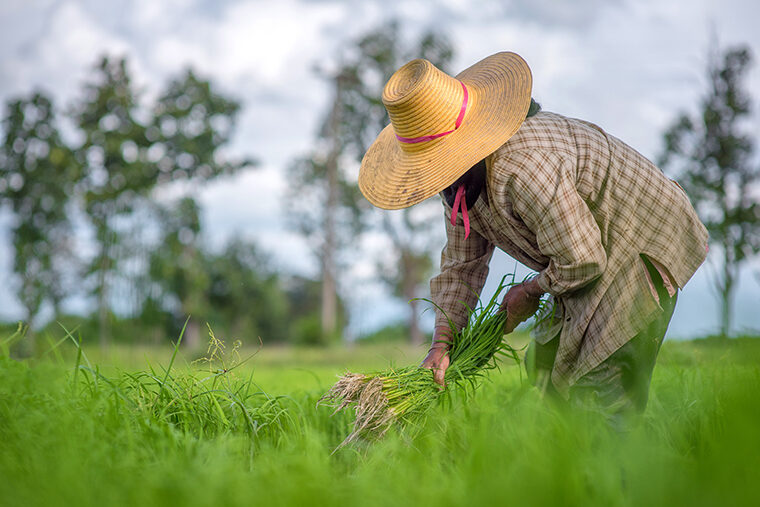 Early rice growers unwittingly gave barnyard grass a big hand, helping to give root to a rice imitator that is now considered one of the world's worst agricultural weeds.
Early rice growers unwittingly gave barnyard grass a big hand, helping to give root to a rice imitator that is now considered one of the world's worst agricultural weeds.Wednesday, 16 October 2019
Rice irrigation worsened landslides in deadliest earthquake of 2018
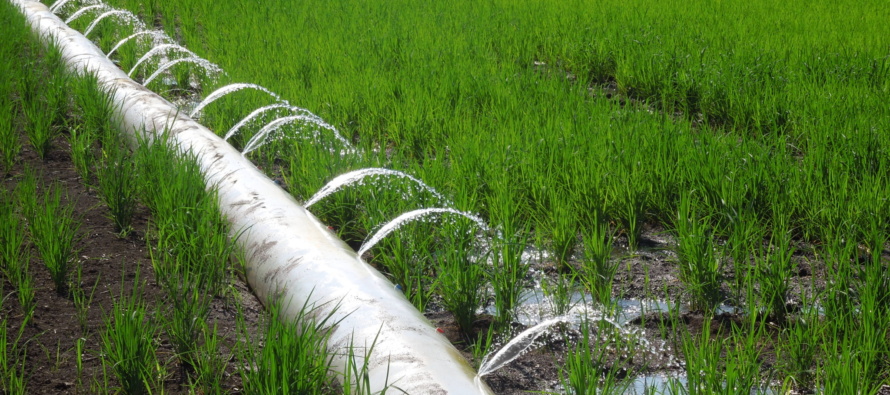 Irrigation significantly exacerbated the earthquake-triggered landslides in Palu, on the Indonesian island of Sulawesi, in 2018, according to an international study led by Nanyang Technological University, Singapore (NTU Singapore) scientists.
Irrigation significantly exacerbated the earthquake-triggered landslides in Palu, on the Indonesian island of Sulawesi, in 2018, according to an international study led by Nanyang Technological University, Singapore (NTU Singapore) scientists.Tuesday, 15 October 2019
Ancient Maya canals and fields show early and extensive impacts on tropical forests
 New evidence in Belize shows the ancient Maya responded to population and environmental pressures by creating massive agricultural features in wetlands, potentially increasing atmospheric CO2 and methane through burn events and farming, according to geographical research at The University of Texas at Austin published in the Proceedings of the National Academy of Sciences.
New evidence in Belize shows the ancient Maya responded to population and environmental pressures by creating massive agricultural features in wetlands, potentially increasing atmospheric CO2 and methane through burn events and farming, according to geographical research at The University of Texas at Austin published in the Proceedings of the National Academy of Sciences.Monday, 14 October 2019
Machine learning helps plant science turn over a new leaf
Sunday, 13 October 2019
Urban, home gardens could help curb food insecurity, health problems
 Food deserts are an increasingly recognized problem in the United States, but a new study from the Journal of Nutrition Education and Behavior, published by Elsevier, indicates urban and home gardens -- combined with nutrition education -- could be a path toward correcting that disadvantage.
Food deserts are an increasingly recognized problem in the United States, but a new study from the Journal of Nutrition Education and Behavior, published by Elsevier, indicates urban and home gardens -- combined with nutrition education -- could be a path toward correcting that disadvantage.Saturday, 12 October 2019
Nodulation connected to higher resistance against powdery mildew in legumes
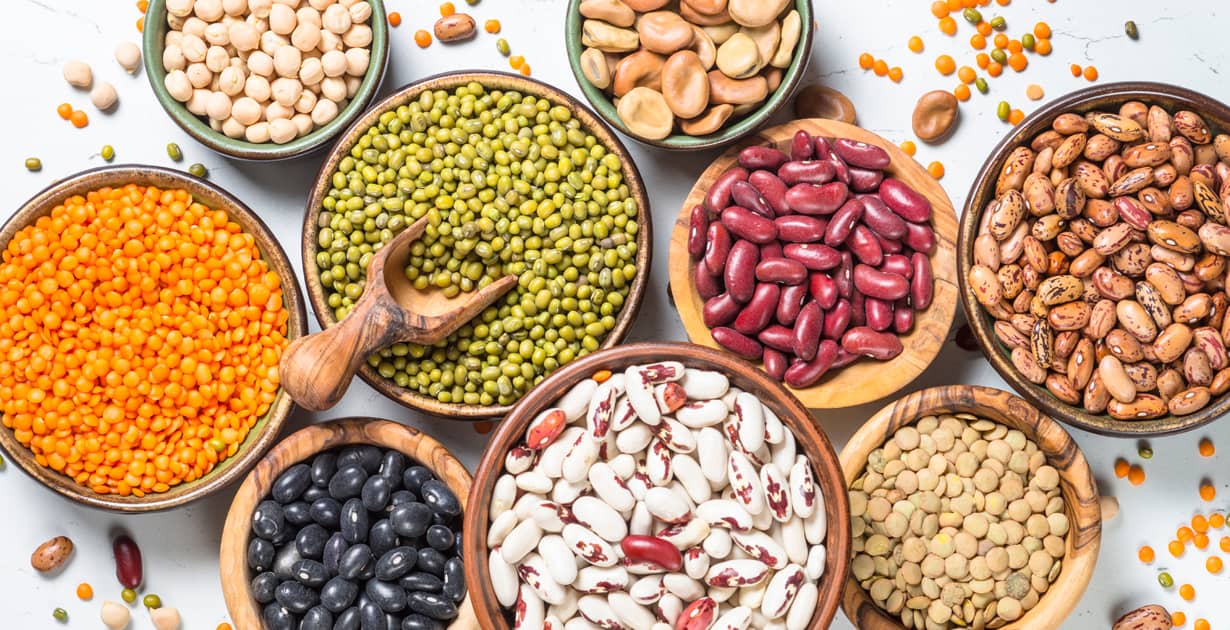 Scientists have long known that nodulation is important to plant health. Nodulation occurs when nodules, which form on the roots of plants (primarily legumes), form a symbiotic relationship with nitrogen-fixing bacteria that deliver nutrients to the plant.
Scientists have long known that nodulation is important to plant health. Nodulation occurs when nodules, which form on the roots of plants (primarily legumes), form a symbiotic relationship with nitrogen-fixing bacteria that deliver nutrients to the plant. Friday, 11 October 2019
Fertilizer is used worldwide in farming. It's used to give plants a boost, increasing yield and ultimately farmers' profits.

But, as the old adage goes: the dose makes the poison. Similar effects are seen in over-the-counter medicines. They need to take the right dose, at the right intervals, to be safe and effective. Fertilizer works the same way.
Thursday, 10 October 2019
Frying oil consumption worsened colon cancer and colitis in mice, study shows
 Foods fried in vegetable oil are popular worldwide, but research about the health effects of this cooking technique has been largely inconclusive and focused on healthy people.
Foods fried in vegetable oil are popular worldwide, but research about the health effects of this cooking technique has been largely inconclusive and focused on healthy people.Wednesday, 9 October 2019
New insights on impacts of crop trading in China
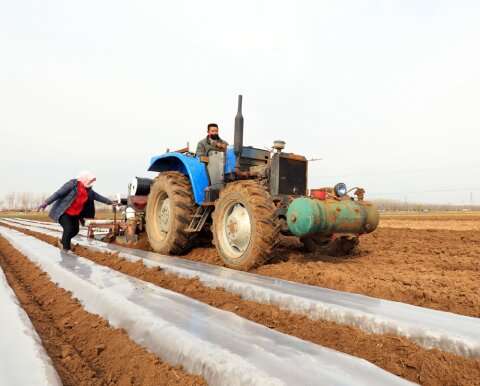 Feeding the world's growing population is one of the great challenges of the 21st century. This challenge is particularly pressing in China, which has 22% of the world's population but only 7% of the global cropland.
Feeding the world's growing population is one of the great challenges of the 21st century. This challenge is particularly pressing in China, which has 22% of the world's population but only 7% of the global cropland. Tuesday, 8 October 2019
Association’s scribe wants Customs to intensify effort on tomato levy
 |
| The National Secretary, Tomato Growers, Processors and Marketers Association of Nigeria, Alhaji Sanni Danladi Yadakwari |
The National Secretary, Tomato Growers, Processors and Marketers Association of Nigeria, Alhaji Sanni Danladi Yadakwari has demanded that Nigerian Custom Services (NCS) constitute an inspection committee that would monitor and scrutinize the import activities of tomato processing companies in Nigeria towards revenue generation via levies. He disclosed this in an exclusive interview at Abuja.
Not all meat is created equal: How diet changes can sustain world's food production

If you wanted to really mess with the world's food production, a good place to start would be in Morocco. They don't grow much here, but it is home to mines containing most of the world's known reserves of phosphate rock, the main source of the nutrient phosphorus. Most of us across the globe, most days, will eat some food grown on fields fertilized by phosphate rock from these mines.
Monday, 7 October 2019
Scientists successfully inoculate, grow crops in salt-damaged soil
 A group of researchers may have found a way to reverse falling crop yields caused by increasingly salty farmlands throughout the world.
A group of researchers may have found a way to reverse falling crop yields caused by increasingly salty farmlands throughout the world.Sunday, 6 October 2019
Editorial- CBN’s loan Intervention: best agronomic practices also important

We wish to
commend the Central Bank of Nigeria (CBN)’s determination to ensure loan
intervention to ten economically viable agricultural crops as a means of
diversifying the nation’s economy from mono product to agribusiness-based
industrialisation, where the entire sub-sector along the value chains of food
productivity are effectively engaged and supported, with emphasis on maize,
cotton, cassava, rice, tomato, livestock, palm-oil, cocoa and poultry.
New way to bump off ticks: Dry up their saliva
 Saliva from a tick's bite can transmit pathogens that cause serious illnesses, such as Lyme disease, and significant agricultural losses. Current insecticides have drawbacks, so scientists have been seeking new ways to prevent these pesky arachnids from spreading pathogens. Now, researchers report that compounds they previously identified can dry up ticks' saliva by upsetting the balance of ions in the salivary gland, reducing feeding and potentially limiting pathogen transmission.
Saliva from a tick's bite can transmit pathogens that cause serious illnesses, such as Lyme disease, and significant agricultural losses. Current insecticides have drawbacks, so scientists have been seeking new ways to prevent these pesky arachnids from spreading pathogens. Now, researchers report that compounds they previously identified can dry up ticks' saliva by upsetting the balance of ions in the salivary gland, reducing feeding and potentially limiting pathogen transmission.Saturday, 5 October 2019
The flavor of chocolate is developed during the processing of the cocoa beans
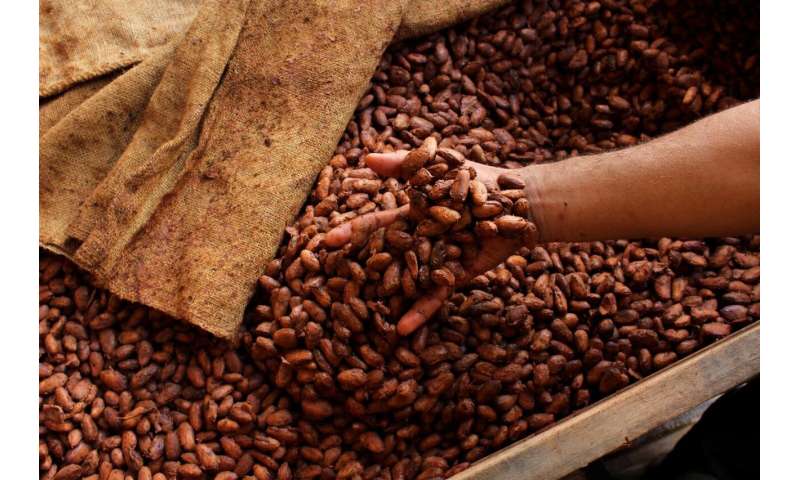 Just as we have seen an increase in the number of microbreweries making specialty beers, the market for chocolate has also developed, so there are more high-end chocolate manufacturers who are trying to stand out by fine tuning the taste and making several different varietals. Therefore, there is a need to know how you can address this during the processing of the noble cocoa.
Just as we have seen an increase in the number of microbreweries making specialty beers, the market for chocolate has also developed, so there are more high-end chocolate manufacturers who are trying to stand out by fine tuning the taste and making several different varietals. Therefore, there is a need to know how you can address this during the processing of the noble cocoa.Friday, 4 October 2019
How bees live with bacteria
 An apple plantation in spring. The trees are in full bloom. But to ensure that they also yield in autumn, workers have to do a real fluff job for weeks: each individual flower is manually pollinated with brushes -- because there are no bees left to do the job. Not a nice vision of the future. But in some regions of China this is already reality. And the disappearance of the bees is reported all over the world.
An apple plantation in spring. The trees are in full bloom. But to ensure that they also yield in autumn, workers have to do a real fluff job for weeks: each individual flower is manually pollinated with brushes -- because there are no bees left to do the job. Not a nice vision of the future. But in some regions of China this is already reality. And the disappearance of the bees is reported all over the world.USDA Partners FACAN on policy formulation
As a means of developing the Nigerian agriculture sector
through the provision of favourable policies and work plan, the United States
Department of Agriculture (USDA) has shown interest in partnering with the
Federated Commodity Association of Nigeria (FACAN). This was made known by the
National Secretary, FACAN, Dr. Bello Nuhu Dogondaji in Abuja.
Thursday, 3 October 2019
African Agriculture Suffering Due To Unnecessary Importation
 |
| The Governor of Kebbi State, Alhaji Atiku Bagudu |
The Governor
of Kebbi State, Alhaji Atiku Bagudu has said that the African agricultural
sector is currently suffering a serious setback due to the way foods which
could be produced locally were being imported from industrialized world. He
disclosed this recently at the 6th African Association of Agricultural
Economists (AAAE) triennial conference, held in Abuja.
Positives of climate change? Agricultural, economic possibilities for West Virginia
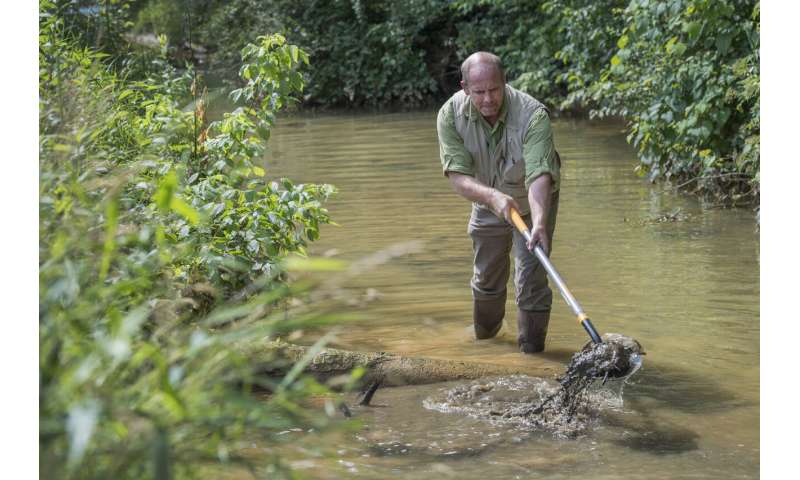 Depending on your side of the aisle, climate change either elicits doomsday anxiety or unabashed skepticism.
Depending on your side of the aisle, climate change either elicits doomsday anxiety or unabashed skepticism.Wednesday, 2 October 2019
APRA-Nigeria inaugurates board for policy impact on agric commercialization and smallholder transformation
An Advisory
Board chaired by the former Commissioner of Agriculture, Kaduna state, and Director
General (DG) of Nigerian Agric Business Group (NABG) Dr. Manzo Daniel Maigari
has been constituted with a mandate to facilitate the process of transforming
APRA Nigeria research output into effective policies and advocate for effective
implementation towards transforming the livelihood trajectory of farming
household in Ogun and Kaduna as APRA pilot states in Nigeria.
Commodity Associations want government support
The ten new agricultural commodity associations given
certificates of official operation by the Federal Government (FG) have demanded
for more support and interventions that would enable them to be efficient in
their service delivery to ensure food security, wealth and job creation in
Nigeria. This demand was made yesterday at the official launching and
presentation of certificates to the associations by the Federal Ministry of
Industry, Trade and Investment (FMITI) in Abuja.
Poultry farmers’ boss hails govt on border closure
 |
| The President of Poultry Association of Nigeria (PAN) Mr. Ezekiel Ibrahim |
The President of Poultry Association of Nigeria (PAN) Mr.
Ezekiel Ibrahim Mam has commended the administration of the President Mohammadu
Buhari for his political will to close all the land borders against illegal
importation of banned items into the country. He made the commendation in an
exclusive with Foodfarmnews in Abuja.
New DNA sequencer method achieves early-stage and broad-range detection of wheat diseases
 Plant diseases, especially those caused by fungal pathogens, jeopardize global crop biosecurity and preventing them requires rapid detection and identification of causal agents.
Plant diseases, especially those caused by fungal pathogens, jeopardize global crop biosecurity and preventing them requires rapid detection and identification of causal agents.Tuesday, 1 October 2019
Getting to the root of how plants tolerate too much iron
 Iron is essential for plant growth, but with heavy rainfall and poor aeration, many acidic soils become toxic with excess iron. In countries with dramatic flood seasons, such as in West Africa and tropical Asia, toxic iron levels can have dire consequences on the availability of staple foods, such as rice.
Iron is essential for plant growth, but with heavy rainfall and poor aeration, many acidic soils become toxic with excess iron. In countries with dramatic flood seasons, such as in West Africa and tropical Asia, toxic iron levels can have dire consequences on the availability of staple foods, such as rice.
Subscribe to:
Comments (Atom)










